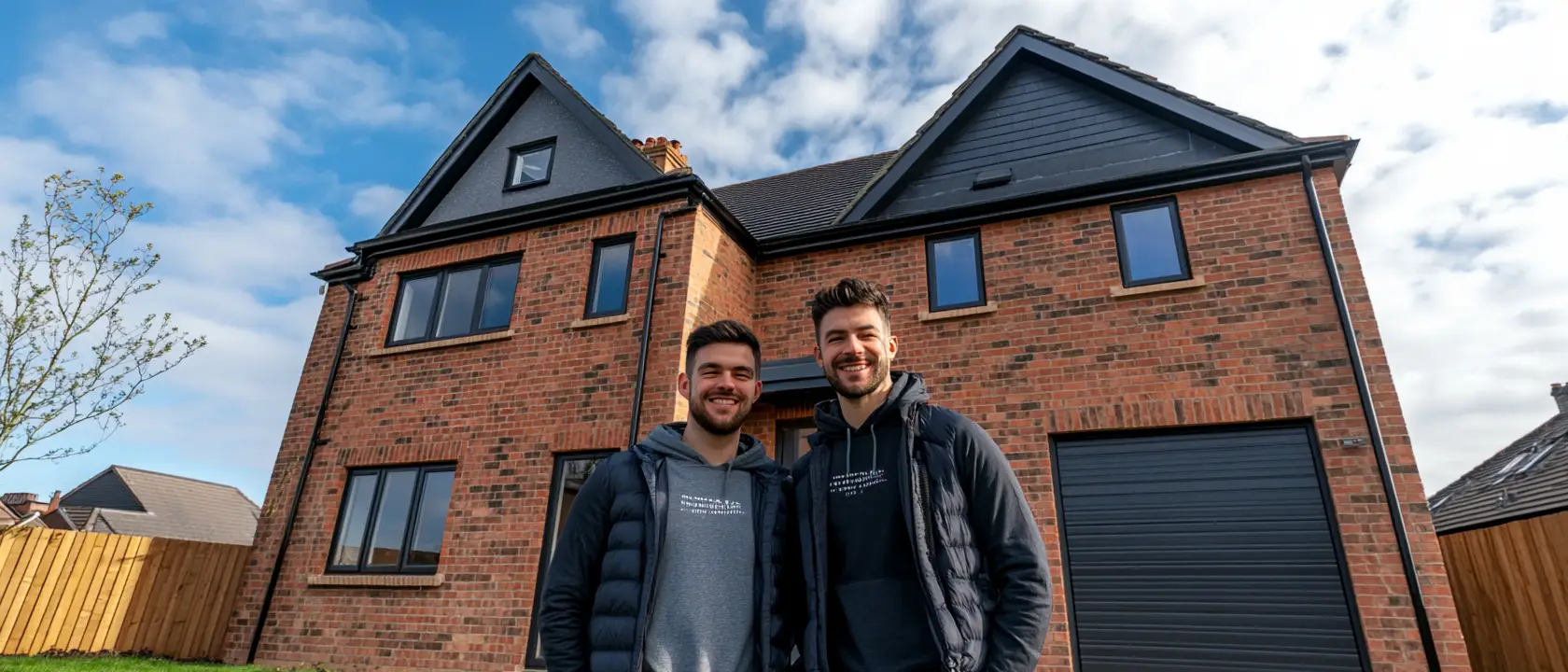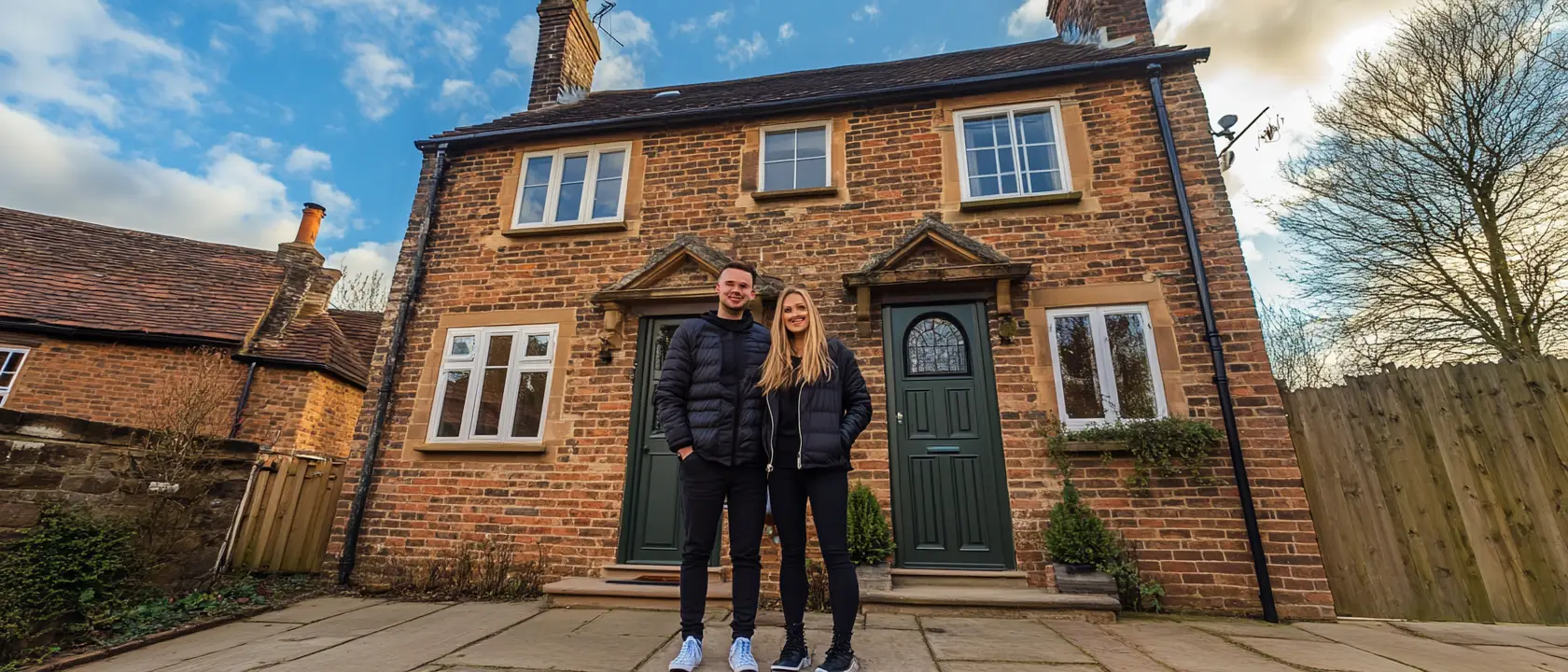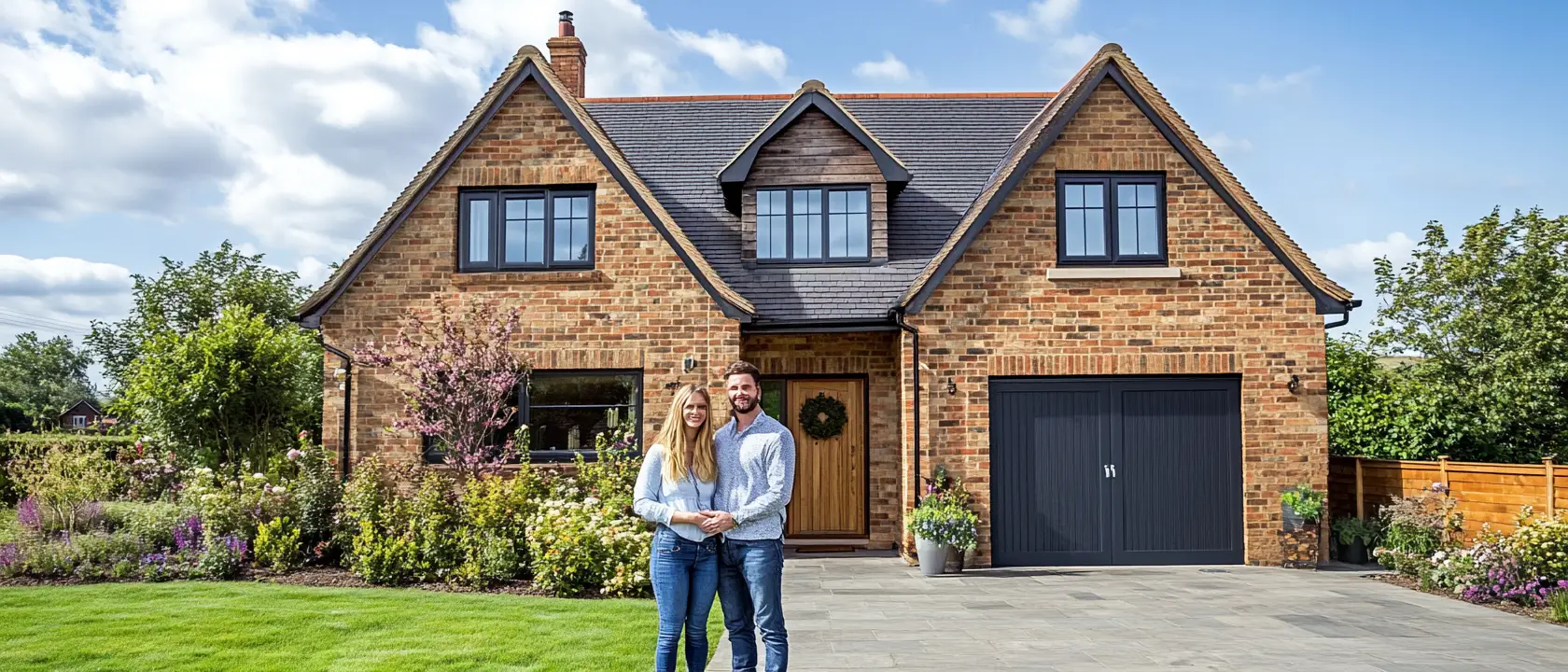Buying your first home is an exciting milestone, but it can also feel a little overwhelming. From securing a mortgage to finding the perfect property, the process comes with a lot of big decisions. Whether you’re looking to buy your first home in a bustling town or a quiet countryside village, knowing what to expect can make the journey smoother and more enjoyable.
To help you get started, here are the top 5 things you should consider as a first-time buyer.

1. Understand Your Budget
The first step to buying your first home is understanding exactly what you can afford. It’s not just the purchase price of the home that you need to consider—there are other costs like deposit, stamp duty (if applicable), and legal fees. It’s important to assess your finances early on so you can make realistic decisions.
What to do:
- Deposit: Aim to save at least 5-10% of the property’s value for your deposit. The more you can save, the better deals you’ll likely get on your mortgage.
- Additional costs: Factor in other expenses such as survey costs, moving fees, and furniture.
- Help to Buy and Shared Ownership: These government schemes may be available to help you get onto the property ladder with a lower deposit.
2. Get the Right Mortgage Advice
Securing the right mortgage is crucial to buying your first home. As a first-time buyer, there are a wide range of mortgage products available to you, each with different interest rates, fees, and terms. With so many options, it’s essential to get professional advice.
What to do:
- Use a mortgage broker: A broker can help you navigate the mortgage market and may have access to exclusive deals that aren’t advertised by banks or building societies.
- Fixed vs. variable rates: Decide whether you want the stability of a fixed-rate mortgage or are comfortable with the flexibility of a variable-rate mortgage, which may fluctuate over time.
- Check your credit score: Lenders will use your credit score to assess your mortgage application, so make sure it’s in good shape before applying.

3. Research the Location Thoroughly
Location is key when choosing your first home. It’s important to find a place that fits both your lifestyle and future plans. Consider the local amenities, transport links, and schools, even if you’re not thinking about children right now—it could affect the property’s value.
What to do:
- Visit the area: Spend time in the area at different times of day to get a feel for the neighbourhood.
- Look ahead: Think about your future. Is the area likely to appreciate in value? Will it meet your needs in 5 or 10 years?
- Commute and transport: If you’re working, consider how long the commute will be and whether you have access to good transport links.
4. Factor in Long-Term Costs
Owning a home comes with more long-term financial responsibilities than renting. Aside from your mortgage payments, you’ll need to budget for things like home insurance, maintenance, and utility bills. You’ll also need to factor in the cost of any improvements or repairs you might want to make after moving in.
What to do:
- Insurance: Once you have an offer accepted, you’ll need buildings insurance to protect your home from damage.
- Maintenance: Keep a budget aside for ongoing maintenance and repairs. Home ownership can be unpredictable, and it’s wise to have an emergency fund for unexpected repairs.
- Council tax: Make sure you check the council tax band for your property—this can vary significantly depending on location.
5. Be Ready to Move Quickly
The housing market can move fast, so being prepared can give you an advantage when you’re ready to make an offer. Having your mortgage agreement in principle and documents ready shows sellers you’re serious and can help you move forward without delays.
What to do:
- Get your mortgage agreement in principle: This is a conditional offer from a lender that gives you an idea of how much you can borrow, making you a more attractive buyer to sellers.
- Have your solicitor ready: Choose a solicitor or conveyancer early on to avoid any delays once your offer is accepted.
- Keep your paperwork organised: Ensure you have your proof of income, ID, and any other documents ready to move forward quickly.

Frequently Asked Questions for First-Time Buyers
Here are some common questions first-time buyers often have when embarking on their property journey.
Q: What is an Agreement in Principle, and do I need one before viewing houses?
An Agreement in Principle (AIP) is a statement from a mortgage lender outlining how much they’re likely to lend you, based on an initial assessment of your financial situation. While it’s not required to view properties, having one can show sellers you’re serious, and it’s often necessary before making an offer.
Q: What government schemes are available for first-time buyers?
There are several government schemes designed to help first-time buyers, including Help to Buy, Shared Ownership, and First Homes. These schemes often help buyers get onto the property ladder with a lower deposit or provide access to homes at a discount.
Q: What’s the difference between a fixed-rate and a variable-rate mortgage?
A fixed-rate mortgage offers stability by locking in your interest rate for a set period, meaning your monthly repayments stay the same. A variable-rate mortgage fluctuates depending on the lender’s rate or the Bank of England’s base rate, meaning your payments could increase or decrease over time.
Q: What’s the minimum deposit needed for a first-time buyer?
Most first-time buyers will need a deposit of at least 5% of the property’s value, though a larger deposit (10% or more) will often help you secure better mortgage rates and terms.
Q: How can I improve my chances of getting a mortgage?
To improve your chances of getting a mortgage, ensure your credit score is healthy by paying bills on time, reducing outstanding debt, and avoiding any new credit applications in the months leading up to your mortgage application.






